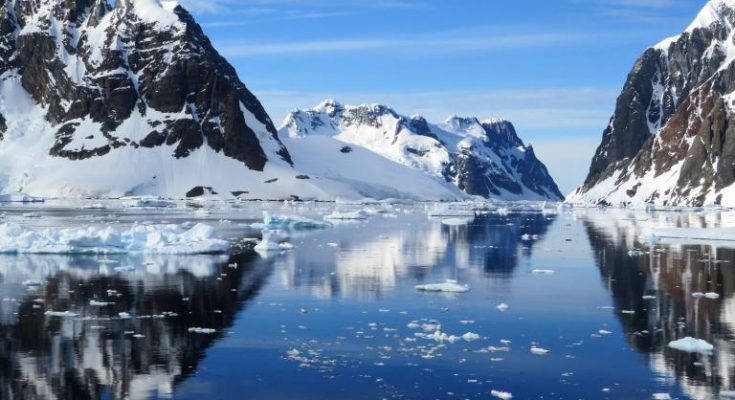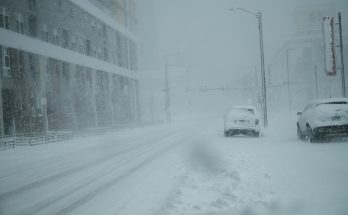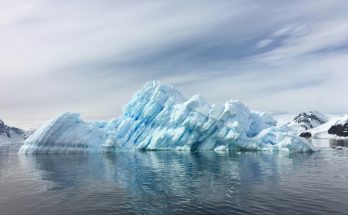The WMO Executive Council adopted four high-level ambitions for the cryosphere – the frozen components of our Earth System – which are undergoing signficant and largely irreversible changes. It also agreed to strengthen its engagement on the Antarctic.
“Urgent action to mitigate climate change is needed to avoid the most devastating outcomes for the cryosphere. Every tenth of a degree of warming that is mitigated will limit the cryosphere loss and subsequent related impacts to Earth systems,” said Roar Skålin and Stephen Hunt, co-chairs of the EC Panel on Polar and High Mountains Observations, Research, and Services (PHORS).
“The cryosphere is important to everyone. It is everyone’s business,” they said in presenting the EC documents.
While the cryosphere is primarily present in regions at mid and high latitudes and in high mountains, the impacts of changes in snow, ice, and frozen ground are felt globally.
Thawing permafrost, reduced snow cover, melting glaciers, declining sea ice, and the melting of polar ice sheets and ice shelves, create risks for everyone on the planet.
Such risks are felt, for example, through sea-level rise, change of hydrological and ecological regimes, changes in the global circulation and reinforced global warming.
There is an acute lack of weather observations in Polar and high mountain regions, thus limiting our ability to monitor the rapid pace of change.
Over Antarctica, for instance, there are just 127 automatic weather stations over a continent which is bigger than the USA. There are few ocean observations – a massive gap given that the ocean is melting antarctica from underneath.
Scientific evidence
However, it is clear that ice melt is accelerating.
In the past 30 years, all ice shelves around Greenland have disappeared – and the same trend is expected in the Antarctic in future. Ice sheet melt has accelerated the rate of sea level rise.
Current levels of warming mean that the world is committed to a sea level rise of at least 2 meters. The speed with which we can reduce greenhouse gas emissions will determine WHEN this happens.
“This may be centuries if we are lucky,” Danish scientist Ruth Motram told WMO delegates.
Antarctica is connected to the rest of the world via atmospheric circulation and ocean currents and contributes to the largest uncertainty in sea-level rise predictions.
Impacts
The further you are from an ice sheet, the more likely it is that you will be impacted by the sea level rise, she said. This means that small islands and coastal communities in the low latitudes where most people live are especially vulnerable, Ruth Motram told a packed lunch-time event.
“We are far away in the Caribbean but Small Island Developing States are not isolated or insulated from the melting of the Poles and glaciers,” Garvin Cummings, head of Guyana’s national meteorological service, told the event.
About 90% of the population in Guyana live in the coastal belt which accounts for 10% of the island’s land area. Rising sea levels has forced the government to strengthen coastal barriers and have forced the evacuation of entire communities, turning them into climate migrants, said Mr Cummings.
Saltwater intrusion is contaminating freshwater supplies and making access to high quality water difficult for coastal settlements. Sea level rise is disrupting coastal ecosystems, causing biodiversity loss and threatening Guyana’s role as a carbon sink, he said.
Ambitions
WMO Executive Council adopted the high-level ambitions as a guide for scaled up activities on the cryosphere – following the example of its long-term ambitions for water.
- Everyone on the planet is prepared for and resilient to the impacts from changes in the cryosphere.
All people, communities, and the infrastructure on the planet need to become resilient to the impact of cryospheric changes by managing and adapting to the related emerging risks. These impacts include sea-level rise, water and food scarcity, geotechnical risks, and threats to trade, economies and energy sources. Moreover, many consequences are not well understood and will continue for generations, even if the intended reductions in global emissions are achieved. Access to accurate and relevant early warnings of risks will better allow communities to build resilience and respond effectively. - The global community works collaboratively to limit and reduce cryosphere loss and its impacts.
The cryosphere has no regard for international borders and geopolitics. Taking critical observations, performing targeted research, and delivering accurate, timely and accessible services requires coordination and collaboration. - Data, science, and indigenous knowledge are accessible and provide a sound basis for policies and decisions on response, mitigation, and adaptation in the face of future changes. Improved observation coverage, good data management, and improved global data sharing are needed to enable analysis and prediction services that support timely actions against threats, risks and impacts.
- The importance of the cryosphere and the consequences of its changes are known, universally understood and inspire action.
Globally, many populations depend on the cryosphere for their economy, culture, nutrition and energy. The impacts of cryospheric changes range from local to global scale. They include food insecurity, inundation of low-lying areas, coastal erosion, loss of water resources, ecosystem service degradation and changes to oceans. Understanding and acknowledging the importance of these changes, including their dynamics, and irreversibility, is needed to mobilize urgent and effective action.
Antarctic engagement
Executive Council also agreed to increase engagement and coordination in Antarctica. The main activities in Antarctica are coordinated through the National Antarctic Programs of the countries party to the Antarctic Treaty. National meteorological services provide different levels of support to these programmes.
Many players are active in Antarctica, not just national meteorological services. They include the Antarctic Treaty System, the Scientific Committee on Antarctic Research, and the Council of Managers of National Antarctic Programmes. This makes good exchange of data essential, especially given by the huge size of the continent and the lack of observations.
Since 1963, the WMO community has worked to assure the real time international exchange of observations on Antarctica, as the backbone of global weather models, in addition to supporting critical research activities.
Because of its vast size and extreme environments, basic in-situ observations are lacking over most of the Antarctic ice sheet and surrounding ocean, especially where rapid changes are occurring,
The EC resolution said that improved and sustained data availability from Antarctica is critical for better global climate model predictions and weather forecasts, including of extreme events occurring in Antarctica, for the validation of satellite products, and for an improved understanding of the complex interactions between Antarctica and the rest of the Earth system,
It agreed that there should be more consultation between WMO Members which are also Party to the Antarctic Treaty, for coordinating their activities and meteorological programmes in Antarctica and the Southern Ocean (South of 60°S), in close partnership with the Antarctic Treaty System
It also agreed that there should be more consultations among WMO Members affected by the downstream impacts of melting ice sheets.
This will evolve the former WMO Antarctica Activities programme and will enhance the important support to the activities conducted in the region by the Parties.
Under the auspices of PHORS, work is underway to establish an Antarctic Regional Climate Centre network to provide coordinated data, climate monitoring and long range forecast services. South Africa volunteered to assume the coordinating role of this network and to support the coordinate dissemination of information.
EC reaffirmed its commitment to the Antarctic Treaty System and asked its technical commissions and PHORS to to develop roadmap for a WMO service strategy for Antarctic, with relevant organizations and users, building on the advances made already, since 2014, in particular the provision of meteorological services for navigation in the Southern Ocean
WMO is an invited expert to the Antarctic Treaty Consultative Meetings and an observer with the Committee for Environmental Protection of the Antarctic treaty System.





